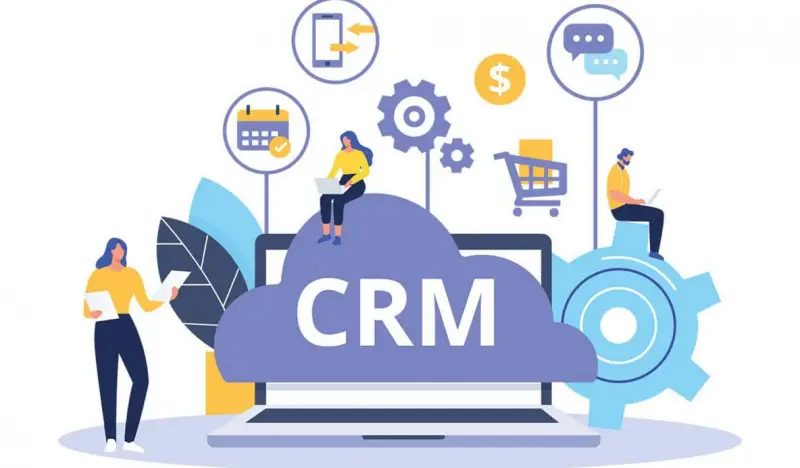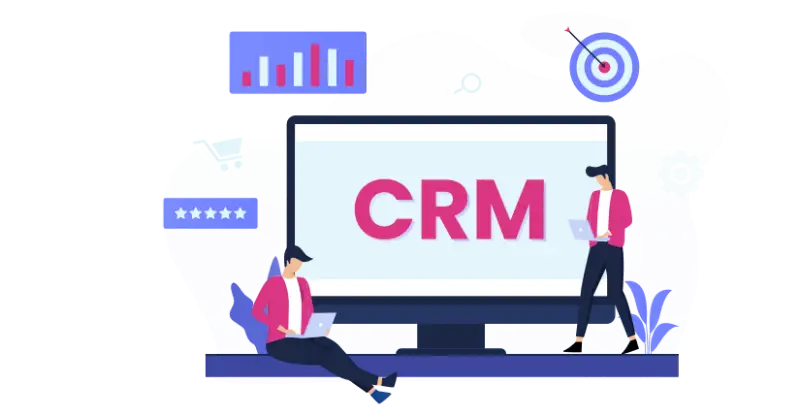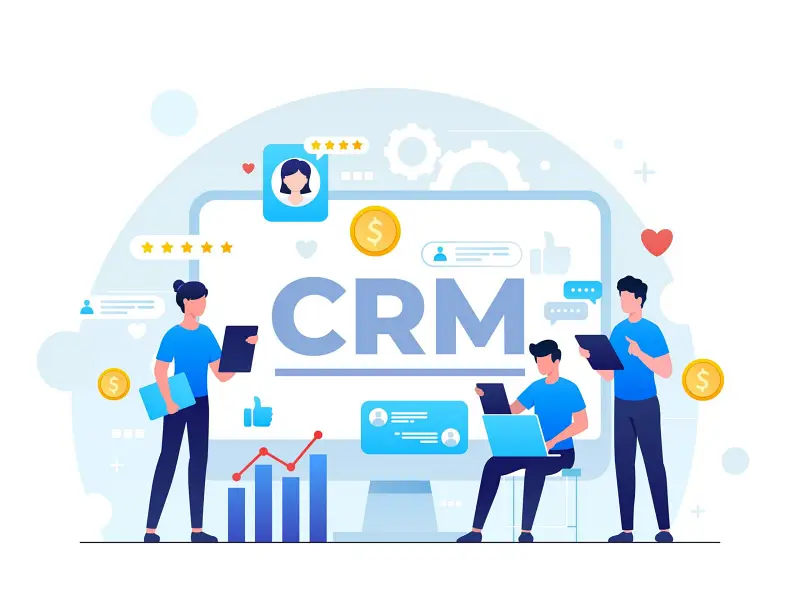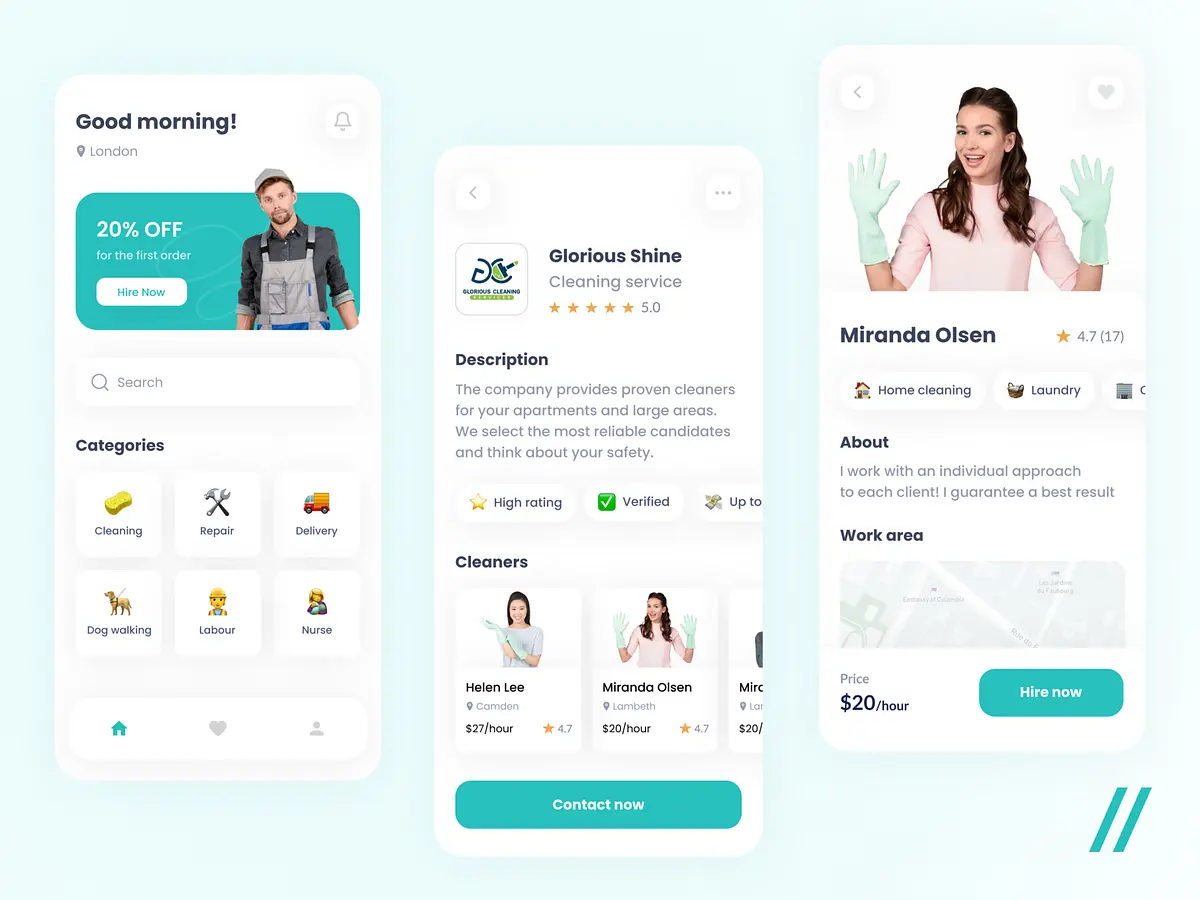How Much Does Custom CRM Development Cost In 2024?


Customer relationship management (CRM) systems are essential for organizations aiming to streamline operations, enhance customer satisfaction, and drive growth. CRM provides significant benefits. For example, research by Nucleus found that for every dollar spent on CRM, companies get $8.71 in return—1.5 times more than just three years ago.
According to Statista, annual revenue growth from CRM systems is projected at 10.59% through 2028, resulting in a market volume of $131.90 billion. As businesses increasingly recognize CRM’s value, many customize CRM solutions to meet unique needs. However, custom CRM software development costs can vary greatly depending on several factors.
This article explores the key influences on custom CRM development costs in 2024 and offers practical tips to help lower costs while still achieving your business goals.
Developing custom CRM software involves various costs. Here’s a breakdown of potential expenses based on recent data.
See more about CRM development:
Custom CRM development costs depend on multiple factors. Below is a detailed overview of these key elements:
Basic Features: Simple CRMs with basic features like contact management, task tracking, and basic reporting are less costly. These systems require less development time and fewer resources.
Advanced Features: More sophisticated CRMs include advanced functionalities such as workflow automation, AI-driven analytics, multi-channel communication, and integration with third-party services. Developing these features requires more skilled developers, longer development times, and rigorous testing, all increasing costs.

Custom CRM Development Cost
Short-Term Projects: These projects, which might include minimal feature sets and basic customizations, can be completed in a few weeks to a couple of months. They are less expensive due to the shorter time commitment.
Long-Term Projects: Projects spanning several months to over a year involve extensive planning, development, and testing phases. These include regular updates and iterations based on feedback, making them more costly.
Regional Variations: Developer rates differ significantly across regions. For instance, Southeast Asian developers, including Vietnam, typically charge lower rates than their U.S. or Western European counterparts. This can result in substantial cost savings.
Skill Levels: More experienced developers with specialized skills command higher rates. While hiring top-tier talent can lead to higher initial costs, it may result in a more efficient development process and a higher-quality product.
Small Teams: A small team might consist of a few developers, a project manager, and a designer. This setup is more cost-effective but may lead to longer development times.
Large Teams: Larger teams can include multiple developers, testers, designers, business analysts, and project managers. While this can accelerate the development process, it also increases payroll and administrative costs.
Minimal Customization: Using an existing CRM solution with slight modifications is cheaper and faster. This approach suits businesses with straightforward requirements.
Extensive Customization: Creating a highly customized CRM tailored to specific business needs involves more extensive coding, testing, and adjustments. This level of customization demands more resources and time, leading to higher costs.
Basic Support: Basic support packages might include regular updates, bug fixes, and minor enhancements. These are essential but relatively low-cost services.
Comprehensive Support: Comprehensive support includes 24/7 technical support, regular system upgrades, and proactive monitoring. This level of service ensures the CRM remains up-to-date and secure but adds to the ongoing expenses.
Common Technologies: Using widely adopted technologies and frameworks can reduce costs, as there is a larger pool of developers with these skills and more available resources and documentation.
Specialized Technologies: Some projects may require niche technologies or specific tools requiring specialized knowledge. These can be more expensive due to the limited availability of skilled developers and potential licensing fees.
Let’s Build Your Custom CRM Software!
Get in touch with our experts for a free consultation. We’ll help you decide on the next steps, explain how your CRM will be built, and provide you with a free estimation.
Reducing the cost of custom CRM development is possible with careful planning and strategic decisions. Here are some practical recommendations:
Determine the key features that best align with your business objectives. Avoid adding unnecessary functionalities that can increase development time and costs. Implement a phased approach, starting with a Minimum Viable Product (MVP). This allows you to launch quickly and add more features based on user feedback and business growth.
Explore outsourcing development to areas where labor costs are more affordable, such as Southeast Asia or Eastern Europe. This can significantly reduce expenses without compromising quality. Hiring freelancers can be more cost-effective than working with large agencies but ensure that freelancers have a proven track record and good reviews.
Leverage open-source CRM platforms like SuiteCRM or Odoo. These can be tailored to suit your particular requirements, saving on licensing fees and reducing development time. Open-source solutions often come with strong community support, which may be more manageable than a significant initial investment.

Tips to Reduce Custom CRM Development Cost
Use cloud-based CRM solutions to avoid the costs of maintaining physical servers and infrastructure. Many cloud-based CRMs offer subscription-based pricing, which can be more manageable than a large upfront investment.
Design the CRM in a modular way, allowing reuse of components across different parts of the system. This reduces the need for redundant development efforts. Utilize existing third-party integrations, such as payment gateways and email services, instead of developing these features from scratch.
Define clear and detailed project requirements from the outset to reduce the likelihood of scope creep, which can lead to increased costs. Adopt agile development practices to ensure flexibility and continuous improvement. Regular iterations help in early identification and resolution of issues, saving time and money.
Hire experienced developers who can work efficiently and deliver high-quality code. Though their rates might be higher, they can finish the project more swiftly and with greater accuracy, reducing overall costs. Additionally, invest in training your internal team to handle minor updates and maintenance, reducing dependence on external developers for every small change.
Implement continuous testing throughout development to detect bugs and issues early, preventing costly fixes later. Gather regular feedback from users to ensure the CRM meets their needs, and make adjustments based on real user input to prevent unnecessary features and reduce rework.
Calculating the expenses involved in creating a custom CRM system can be complex, involving numerous variables and considerations. Fortunately, several tools and resources can assist in providing accurate cost estimates, helping businesses plan their budgets more effectively. Below are some of the most useful tools and resources for estimating CRM development costs:
Several software solutions are designed specifically to help businesses estimate the costs of software development projects, including custom CRM systems. These tools often consider various factors such as project scope, development time, and resource allocation. Some popular cost estimation tools include:

Recommended Tools and Resources
Industry standards can offer important insights into the typical costs associated with custom CRM development. These benchmarks are often based on data collected from various projects within the industry and can serve as a useful reference point. Some sources for industry benchmarks include:
Consulting with experts in the field of CRM development can provide tailored cost estimates and valuable insights. Experts can help identify potential cost drivers and provide recommendations for optimizing the development process. Some ways to engage with experts include:
Several online calculators are available that provide quick and easy cost estimates for custom CRM development. These calculators typically require input on project specifics, such as the number of users, desired features, and development timeline. Some popular online calculators include:
Using templates and checklists can help ensure that all relevant factors are considered when estimating development costs. These resources can provide a structured cost estimation approach and help identify potential oversights. Some useful templates and checklists include:
Custom CRM systems are essential for enhancing operations, boosting customer satisfaction, and driving growth. As the market grows, more businesses opt for customized CRM solutions.
However, the costs of developing custom CRM software can vary widely. Factors such as features, development time, and team size all play a role. You can effectively manage these costs by focusing on essential features, choosing affordable development teams, and leveraging open-source or cloud-based solutions.
Contact TECHVIFY for top-notch CRM development services and expert consultation. Let us help you create a customized CRM solution that fits your needs and budget.
TECHVIFY – Global AI & Software Solutions Company
For MVPs and Market Leaders: TECHVIFY prioritizes results, not just deliverables. Reduce time to market & see ROI early with high-performing Teams & Software Solutions.


Table of ContentsCRM Software Cost Estimates for 2024/25Factors Influencing Custom CRM Development CostsFeatures and ComplexityDevelopment TimeDeveloper RatesTeam SizeCustomization NeedsMaintenance and SupportTechnology StackTips for Lowering Custom CRM Development CostsTools and Resources for Estimating CRM Development CostsCost Estimation SoftwareIndustry BenchmarksExpert ConsultationsOnline CalculatorsTemplates and ChecklistsConclusion Technological advancements are paving new paths for companies across different sectors, and the logistics industry is no exception. According to a survey by Gartner, 87% of supply chain professionals plan to invest in enhancing the resilience of their platforms. Logistics encompasses a broad and complex array of processes that demand the utmost precision and continuous optimization. Companies can…
26 July, 2024

Table of ContentsCRM Software Cost Estimates for 2024/25Factors Influencing Custom CRM Development CostsFeatures and ComplexityDevelopment TimeDeveloper RatesTeam SizeCustomization NeedsMaintenance and SupportTechnology StackTips for Lowering Custom CRM Development CostsTools and Resources for Estimating CRM Development CostsCost Estimation SoftwareIndustry BenchmarksExpert ConsultationsOnline CalculatorsTemplates and ChecklistsConclusion The technology sector is advancing at an unprecedented pace, and the HR landscape is evolving right alongside it. To attract top talent, HR professionals and organizations need to stay ahead of emerging technology hiring trends. This year, we are witnessing significant shifts in hiring practices that will redefine our understanding of the future workforce. According to a Microsoft…
25 July, 2024

Table of ContentsCRM Software Cost Estimates for 2024/25Factors Influencing Custom CRM Development CostsFeatures and ComplexityDevelopment TimeDeveloper RatesTeam SizeCustomization NeedsMaintenance and SupportTechnology StackTips for Lowering Custom CRM Development CostsTools and Resources for Estimating CRM Development CostsCost Estimation SoftwareIndustry BenchmarksExpert ConsultationsOnline CalculatorsTemplates and ChecklistsConclusion Customized software plays a major role in managing various tasks within the telecom industry. It is essential for allocating numbers to subscribers and managing networks through optimized and AI-enabled routing protocols. Additionally, it aids in detecting fraud with intelligent telecom software development solutions and maintaining detailed subscriber profiles, including comprehensive call recording reports. I. A Quick Look into…
24 July, 2024


Thank you for your interest in TECHVIFY Software.
Speed-up your projects with high skilled software engineers and developers.
By clicking the Submit button, I confirm that I have read and agree to our Privacy Policy